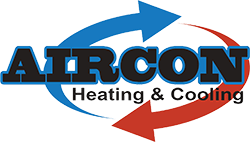Tips For Troubleshooting Your AC System
An air conditioner can be a lifesaver when the mercury is soaring. You and your family can stay comfortable and happy even on the hottest days. However, just like most systems in your home, your air conditioning system may develop a problem from time to time that needs to be remedied. Dirty AC Filter If you notice that your air conditioning system doesn’t seem to be adequately producing cold air, you could have a dirty AC filter. Remove the filter from its housing and hold it up to a light source. If you can no longer see through the filter, it’s time to replace it. Whenever too much debris gets stuck inside the filter, air will have a harder time moving through it. Wrong Setting A common problem many homeowners run into at the beginning of the summer season is that their air conditioning system simply won’t blow cold air. Fortunately, this is often a simple thermostat error, and it can be an easy fix. Take a look at your thermostat and make sure that you switched it from heat mode to cool mode. When your thermostat is set on heat mode, it cannot turn on your air conditioning system...
View Article Read More